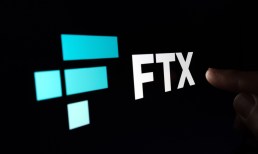We live in the age of influencers. Taylor Swift and Benny Drama come to mind, sure. But there are millions of others on the net, with hundreds of thousands or even millions (upon millions) of followers, weighing in on everything from beauty regimens to the best ways in which to keep in shape to dog training to how to survive a natural disaster. You name it.
AU10TIX CEO Carey O’Connor Kolaja said the words and videos, the Facebook pages and tweets and TikToks posted by celebrities and internet sensations carry weight and can influence the choices people make — and even impact their health.
“There’s a conversation to be had,” she said in an interview with Karen Webster, along the lines of: How do we make sure that individuals and especially influencers who have millions of followers are properly credentialed as experts — and not just verified as individuals who are who they say they are — to speak on certain topics?
That credentialing issue has yet to be solved, said O’Connor Kolaja — that someone has a certain accreditation or degree, that they are, in other instances, qualified to be thought leaders.
We may be at least part of the way toward such “official” stamps of authenticity. Twitter, after all, has its well-known blue check mark. TikTok is collecting biometric identifiers and other information from users to verify and validate their identity. India’s government has mandated that anyone who wants to create a social media profile must be identified.
O’Connor Kolaja noted that more than half of millennials get their news from social media. We’re far from the time when our worldviews where shaped by headline news from the daily newspaper arriving at our doorstep. A vast majority of the world are now digital natives who rely on real-time news alerts and social media feeds for up-to-the-minute information about what’s happening in the world as well as our own personal spheres.
Advertisement: Scroll to Continue
And as O’Connor Kolaja said, although the issue of free speech always is out there, it is the global social media and digital platforms that may be the final arbiters of the credentialing (and verification), especially if the government steps in. Companies and AU10TIX’s own customers have been moving beyond the confines of girding against financial fraud and are looking at how to encourage safety and prevent misuses of their forums and platforms.
Best Practices
There are some precedents to establishing those credentials, said O’Connor Kolaja.
“I’d love to draw the analogy to payments,” she said. “At the end of the day, you’re given a credential that effectively means that you can borrow money — perhaps on a credit card or through some alternative form of lending.”
At a high level, she said, verifications and credentials are all about access — and for social media, about access to the right conversations, areas of influence and communities. There’s also an analogue in Hong Kong, where years ago a single card could be used across transit, to pay for goods and services in stores, online — and even gain access to buildings and services.
A successful, streamlined credentialing system, she said, could speed all facets of daily life, such as getting employment verification during the mortgage process, sidestepping the myriad forms and data entries, verifying with a universal digital credential everything from income to where someone works.
That type of high-tech information demands that we be able to take our data with us, as we need it, when we need it. O’Connor Kolaja said the recent proposed policy which would allow Americans to take their bank data with them between financial institutions can help make strides in this area. It’s a concept that can extend to all sorts of information, such as medical histories and test results — even social media. There can be rules over how tech firms can collect and use data from their customers as a way to offer more privacy protections for American consumers.
Other countries, she said, have been tackling such data portability issues for some time, chiefly in the form of open banking.
But portability leads to complexity “because now you’re giving consumers more responsibility over an asset,” she said. That means they must be educated about validating credentials and must build trust in the process and providers.
Tackling the verification of credentials will entail a collaborative and unified approach, spanning what she said might include some unexpected brands and entities. Governments will be the starting point, with digital IDs providing an anchor of trust. And governments are coming together to mull what a portable ID might look like in tandem with the private sector. It won’t be possible in the verification process to be right all the time, but technology will go a long way toward reducing false positives in verification and in making sure that credentials are, in fact, warranted.
“I think we’ve got a complex landscape to navigate ahead of us, particularly as these things become the new normal, but I would argue that giving people the right not only to access, but to revoke access from others to their personal information is definitely the step forward,” she said.



